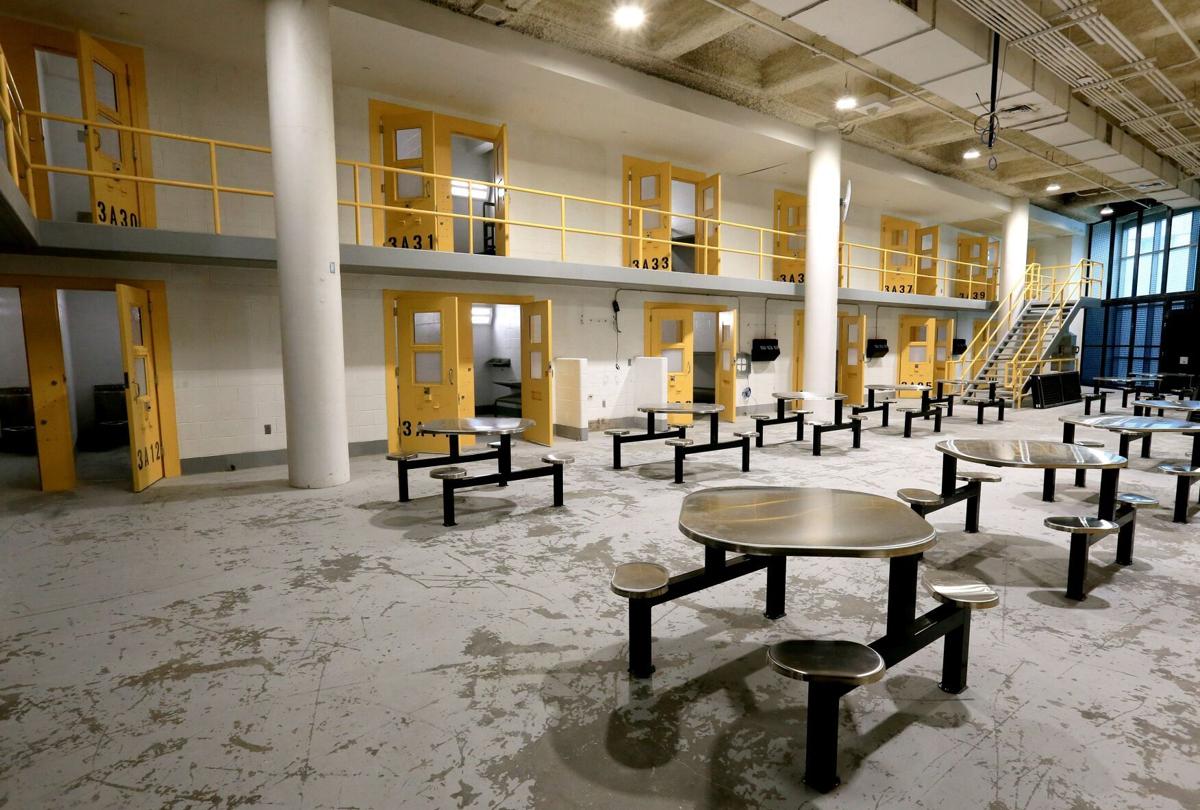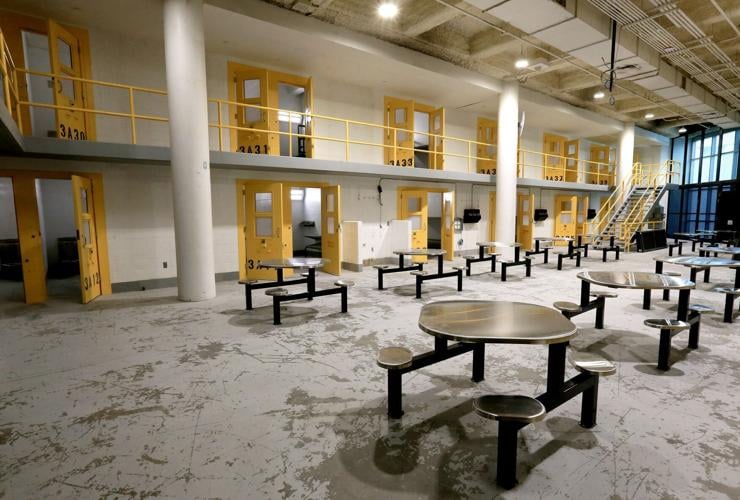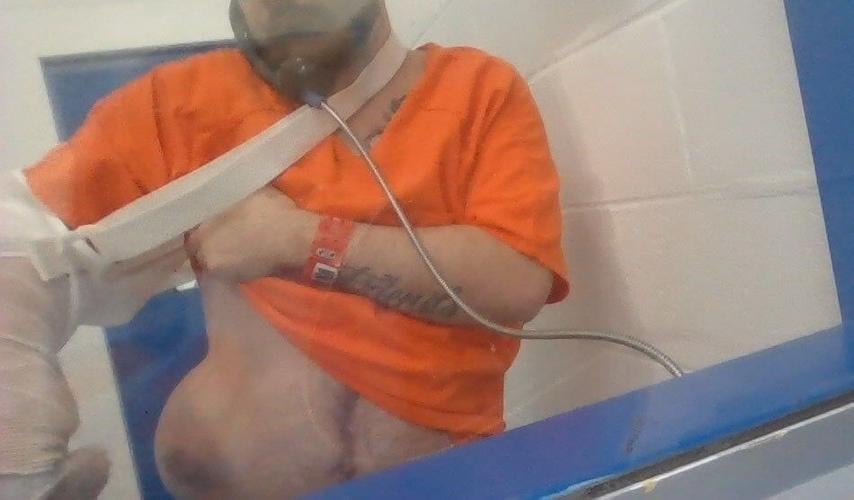ST. LOUIS — Defense attorneys say the city jail is blocking access to clients and shirking a judge’s order to ensure communication between inmates and their lawyers.
The city’s top public defender said he waited hours last week to meet with a client in the middle of a trial. Another lawyer said he got the runaround from corrections officers and police while trying to meet with a man who had been recently arrested. Jail employees have also refused to follow a judge’s order allowing attorneys to pass paper evidence and forms to their clients, lawyers say.
The delays mean that inmates, most of whom have not yet been convicted of crimes, are unable to share important evidence materials, discuss trial strategy or consult about bond with their lawyers, defense attorneys say.
“It’s unacceptable,” said defense attorney Steven Hoffmann.
People are also reading…
The issues mark the latest controversies at a jail that has come under fire for inmate deaths, slow medical responses, understaffing, and restrictions on food and other basic necessities.
Corrections spokesman Monte Chambers said the city is taking the lawyers’ concerns seriously and is implementing “new procedures” to address them. He also said the city is following the judge’s order but said “if there are further clarifications needed for jail staff, we will ensure that information is promptly shared.”
The past year has been especially controversial for the City Justice Center. A civilian jail board struggled to get access to records, inmates and the building itself, leading to months of turmoil. Some called for the resignation of jail Commissioner Jennifer Clemons-Abdullah. Board members resigned in frustration. Advocates and inmate family members blasted conditions there.

The family of Kevin O’Shaughnessy is accusing the City Justice Center of ignoring a cantaloupe-sized hernia on O’Shaughnessy body for weeks.
Then, in January, a public defender complaining about a lack of health care at the jail released a photo of a client who had developed a cantaloupe-sized hernia on his hip. The man’s family complained that the facility was slow to address the issue and had ignored repeated requests for medications.
The day after the Post-Dispatch published the photo, the jail banned attorneys from bringing cellphones into meetings with clients, as attorneys had done for years. Weeks later, they stopped attorneys from passing paper forms and printouts to their clients through slots in the glass separating lawyers from inmates when they meet at the jail.
In April, the city’s presiding judge, Elizabeth Hogan, ordered the jail to reopen the slots and allow attorneys to bring phones into the facility “effective immediately.”
Since that time, however, jail employees have sometimes refused to open the paper-pass slots and have kept a sign hanging in the jail lobby about banned cellphones, attorneys said.
The city’s chief public defender, Matthew Mahaffey, said an attorney recently visited a client to get a signature on a medical release form only to be told by a jail employee that the paper-pass slot couldn’t be opened because there was only one key. They waited an hour for someone to help.
Part of the problem, said Hoffmann, the defense attorney, is that three agencies essentially run parts of the jail: The sheriff’s department oversees moving prisoners from jail to court. City corrections officers staff the inside of the facility. Police bring people in to be booked.
On a recent Sunday, Hoffmann arrived at the jail around 7 p.m. to visit a client. He said staff there gave him the runaround, first refusing to let him into the jail, then telling him he had to walk to the back of the facility because his client was still being booked.
It is a constant struggle, he said.
“This is what has put a bee in my bonnet,” Hoffmann said. “They play this game of musical chairs of who has technical, legal custody of that person.”
Hoffmann was eventually able to see his client.
But Mahaffey detailed a similar struggle later that same week.
He and a colleague arrived at 4:30 p.m. for a scheduled visit with a client to discuss an ongoing trial. Mahaffey said they waited an hour before being told that the person wasn’t available. They came back the following day at 6 a.m. for the meeting.
Mahaffey said it is essential for lawyers to meet with their clients to discuss strategy, new evidence and testimony. His office has tried for months to work around the obstruction and come up with new ways to meet with clients, he said.
But those efforts have been met with “radio silence,” he said.
Chambers, the city corrections spokesman, said in an email that some of the increased wait times could be attributed to the structure of the building, which has only one booth for attorneys to visit clients in each housing unit.
“We work diligently to make sure that attorney client meetings can occur as expeditiously as possible,” he said.
Still, Mahaffey said the City Justice Center is the only jail in the region where he had experienced such obstruction. Hoffmann agreed.
“The idea that someone could be in custody with counsel and not be provided access to that counsel is flabbergasting to me,” Mahaffey said.
√€—ø¥´√Ω Alderman Rasheen Aldridge of the 14th Ward addressed how the Commissioner of Corrections needs to make protocol changes to improve safety at the jail in downtown √€—ø¥´√Ω at a press conference on Nov. 28, 2023. Video by Allie Schallert, aschallert@post-dispatch.com













